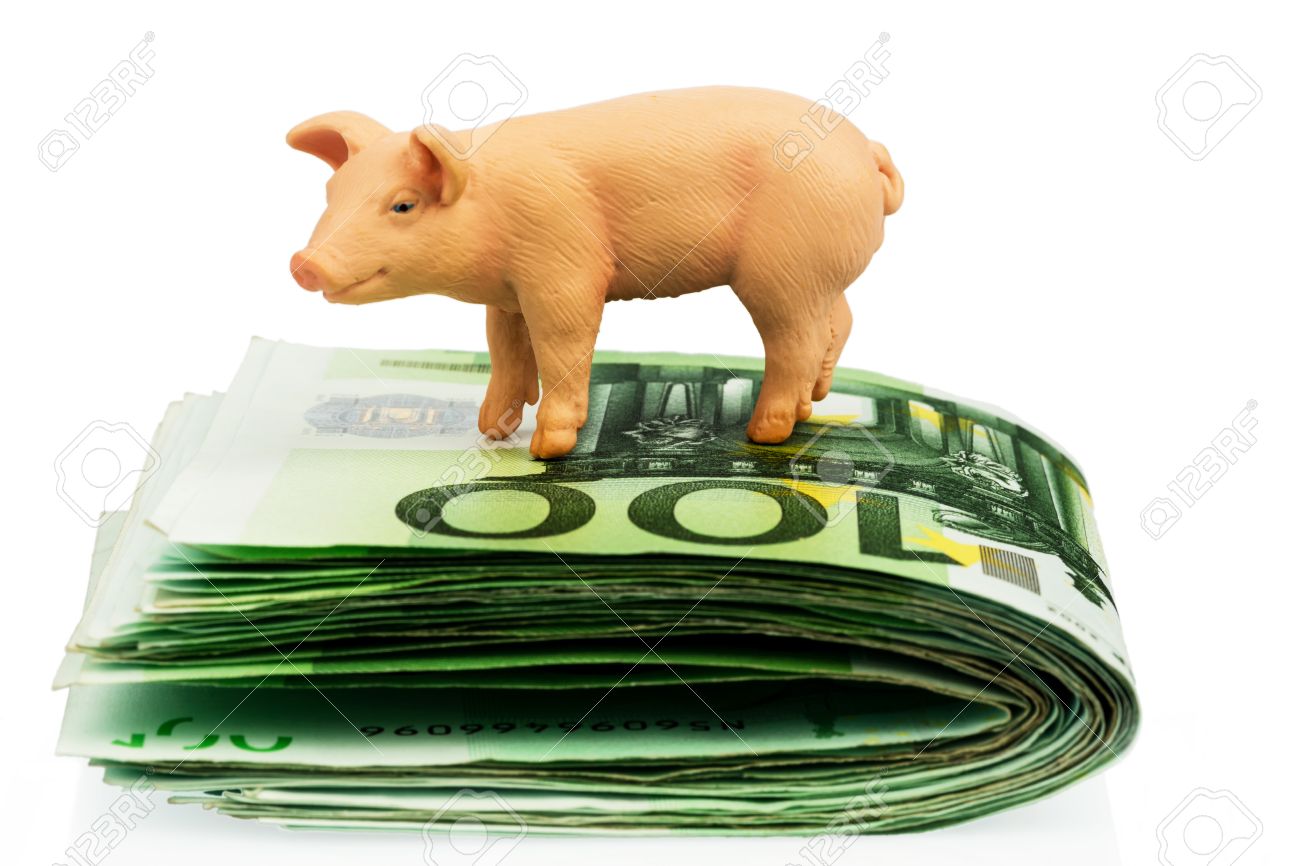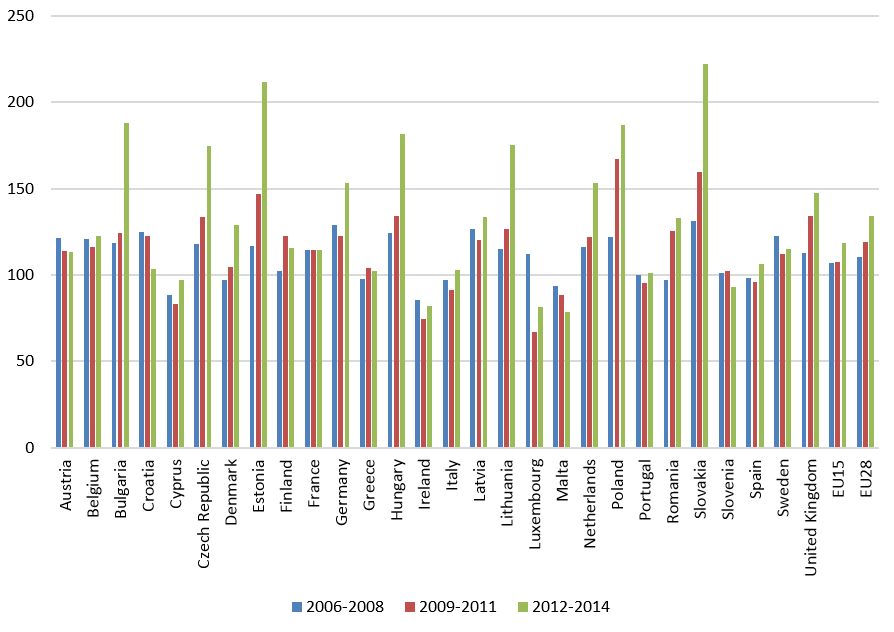The index of the real income of factors in agriculture per annual work unit (better known as index of agricultural income or Indicator A) has increased by 18% in EU15 countries and 35% in EU28 countries from 2005 to 2014 as evident from Eurostat statistics. It is clear from the figure below that compared to 2005, agricultural incomes more than doubled in Estonia and Slovakia in 2012-2014, while it was just decreasing in Cyprus, Ireland, Luxembourg, Malta and Slovenia.
Agricultural income in the European Union by member state, 2005-2014 (2005=100)
Source: Own composition based on Eurostat 2015 data.
Without going very much into detail, it is apparent that agricultural income has been increasing in each period in the majority of the cases. Even in 2009-2011 when the economic crisis definitely had the biggest impact, agricultural real income per worker was just lower on 2005 basis in seven EU members. It is also evident from the figure above that due to increasing support, income of the New Member States (NMS) were increasing at a higher pace than that of EU15.
Such agricultural income growth is mainly based on increasing prices and support. It is evident that European farmers are better off than a decade ago (when they were not so worse-off either, to tell the truth). However, there are many ways to neglect this fact and to find various reasons for continued income support.
One way to put some counter-factual is when someone checks year-to-year changes. It might happen that farmers’ income on average slightly decline from a year to another but short term changes do not modify the whole story behind. Counter-factual can also come up if we take a snapshot of a single sector – there will always be differences here.
Another way of interpretation comes by estimating future trends. Such reports generally accept recent trends but are cautious whether they will continue or not. This kind of reasoning says we should keep support high for those cases when income would fall.
Again another argument here refers to the significantly lower agricultural incomes compared to the rest of the economy. According to a recent study commissioned by the European Parliament on the topic, however, ‘evidence points to farmers NOT being a particularly low-income sector of society in most Member States judged on the basis of their household disposable incomes’. In other words, there is no evidence that farm households have systematically lower incomes than other households.
Taken all these issues into account, I wonder why exactly farmers were on the street of Brussels in the beginning of September. Imagine what would happen if all people with lower income in the short run would go out to the street. Or is this a successful strategy in Europe?
This post was written by Attila Jambor.
Photo: Stock Photo.




This useful analysis needs reading alongside http://capreform.eu/why-are-we-so-lousy-at-measuring-farm-incomes/ as the two are clearly related. Both unfortunately fail to address the components of farm income concerned with costs and taxation. Farmers’ costs of production include items which salaried workers pay out of taxed income. As a farmer I could claim the bulk of my motoring, my clothing, farmhouse repairs and council tax, phone, newspapers and more as legitimate business expenses while my employed friend not only paid for these out of taxed income. He paid the VAT on all those goods subject to the tax as well, while I reclaimed my VAT. The system makes any straight comparison of farmers income with others misleading.
As an agri journalist I meet many farmers who are happy to earn a very low income from their farming, which is not only an activity they enjoy, but is one which reduces their family tax bill.
Any honest analysis of farming incomes needs to somehow make adjustments for these long-standing tax perks which I imagine are widespread across the EU and elsewhere. The phenomena explains in part how seemingly cash-strapped farmers have vehicles and a life-style which is envied by many others… but of course fails to address the concerning issue of low farm-gate prices. This needs a rise in farm efficiency – which is what I research and write about.
Dear Mike,
Thanks for your comment, this is really a useful one. I of course agree that the nature of farm income is different than other income. However, it is very hard for non-farmers to understand that if incomes are on the rise since at least ten years in the EU, why farmers are marching on the street each and every time when farm gate prices are low. Why don’t they march when prices are high? Each of us – farmers and non-farmers – are faced with price volatility but I hardly see any consumers on the street of developed countries claiming lower food prices. Or do you suggest that statistics on this issue is misleading and incomes of farmers are not rising?
Attila